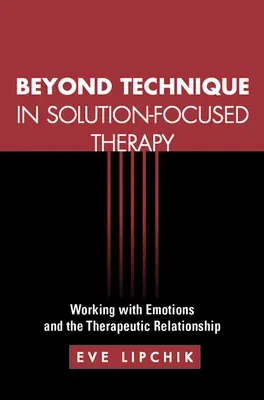Eve Lipchik
(Author)Beyond Technique in Solution-Focused Therapy: Working with Emotions and the Therapeutic RelationshipPaperback, 15 June 2011

Qty
1
Turbo
Ships in 2 - 3 days
Only 2 left
Free Delivery
Cash on Delivery
15 Days
Free Returns
Secure Checkout

Part of Series
Guilford Family Therapy
Part of Series
Guilford Family Therapy (Paperback)
Print Length
230 pages
Language
English
Publisher
Guilford Publications
Date Published
15 Jun 2011
ISBN-10
1609189914
ISBN-13
9781609189914
Description
Product Details
Author:
Book Format:
Paperback
Country of Origin:
US
Date Published:
15 June 2011
Dimensions:
22.61 x
14.99 x
1.78 cm
ISBN-10:
1609189914
ISBN-13:
9781609189914
Language:
English
Pages:
230
Publisher:
Weight:
340.19 gm